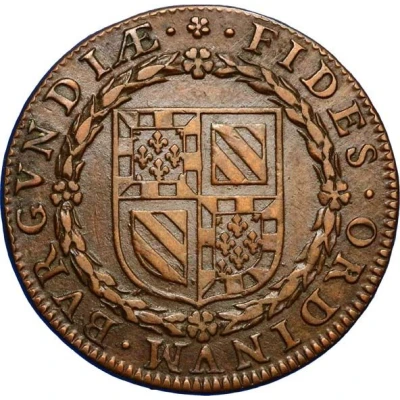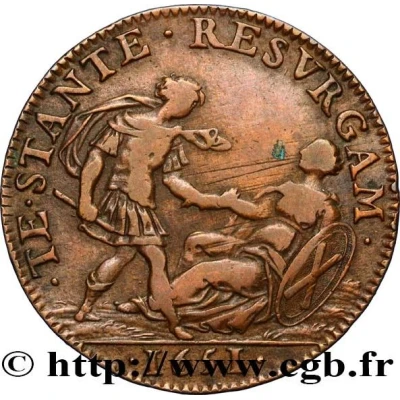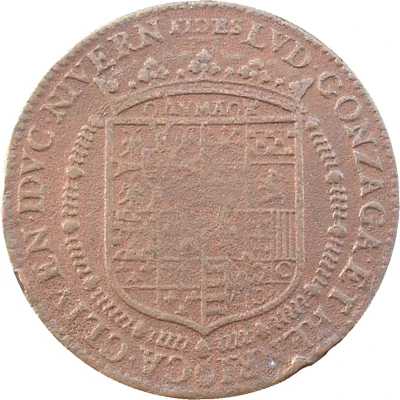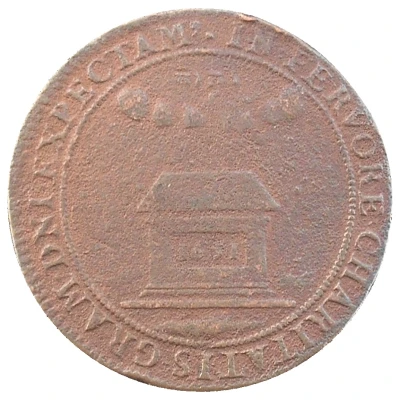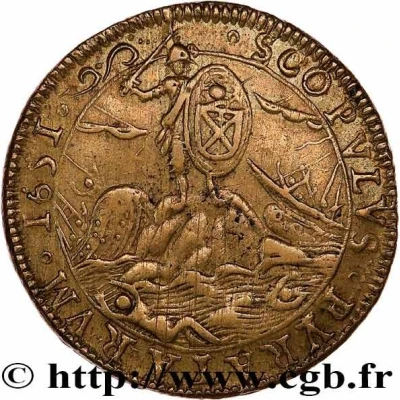
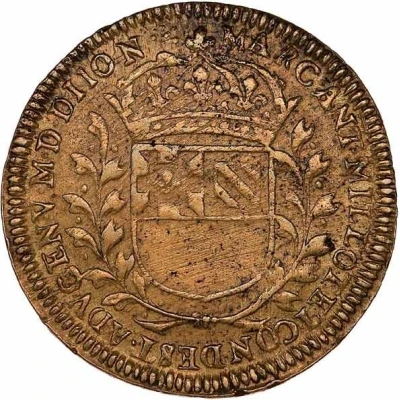

© CGB
Jeton - États de Bourgogne - Maire de Dijon - Marc-Antoine Millotet 1er type
1651 year| Brass | 8 g | 27.5 mm |
| Location | France |
|---|---|
| Type | Commemorative medals › Personality medals |
| Year | 1651 |
| Composition | Brass |
| Weight | 8 g |
| Diameter | 27.5 mm |
| Shape | Round |
| Orientation | Coin alignment ↑↓ |
| Updated | 2024-11-12 |
| Numista | N#371494 |
|---|---|
| Rarity index | 97% |
Reverse
Arms of the city of Dijon within a laurel wreath.
Script: Latin
Lettering: MARC • ANT • MILLOTET • CON • DEST • ADV • GEN • V • M • D • DIION ✿
Edge
Plain.
Comment
Marc-Antoine Millotet, first Advocate General at the Parliament, was elected mayor on June 21, 1650, bearing azure a saltire Or, in chief a shortened cross argent.He recounts: "When I entered the magistracy, I removed all means of taking, in addition to having pursued many supporters, some of whom I had hanged in effigy for having falsified the roles of the council. That's why my first tokens bore this motto: Scopulus piratorum; for on one side were the arms of the city and my name surrounding them, and on the other I was represented on a rock in the middle of the waves against which ships laden with men were breaking. I had the sword in one hand and the shield in the other, where my arms were engraved, and around the token was my motto similar to that of Pompey who, after the defeat of the Pirates, was so nicknamed, as can be seen in Petronne".
Extract from a manuscript entitled Mémoires servant à l'histoire des choses qui se sont passées en Bourgogne pendant la 1ère et la 2ème guerre civile en 1650, au tems de la détention des princes et depuis leur liberté, by M.-A. Millotet.
In the room of the former town hall, an inscription celebrates M.-A. Millotet's activity: "Marc-Antoine Millotet, mayor, by his courageous firmness, maintained, in 1648, in Dijon, the King's authority during the Fronde wars".
